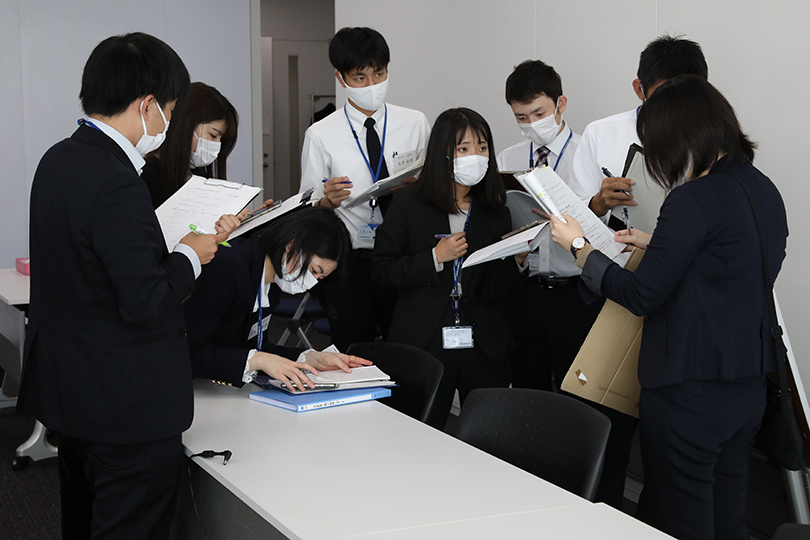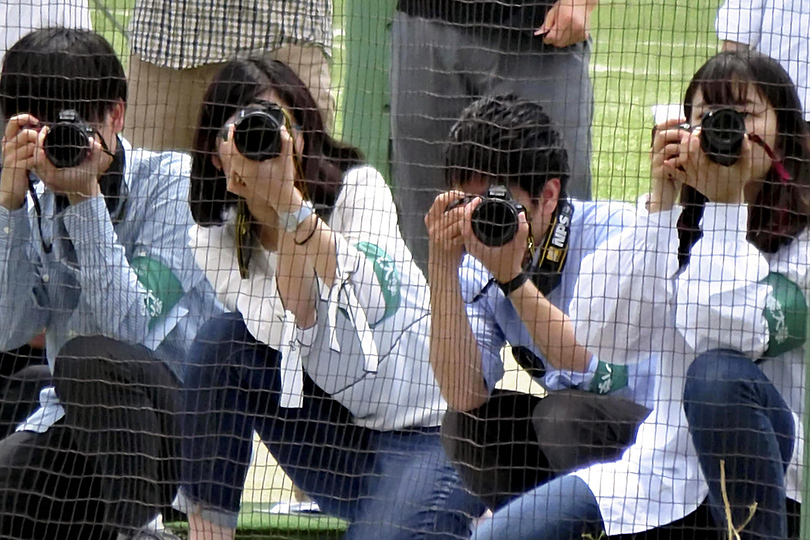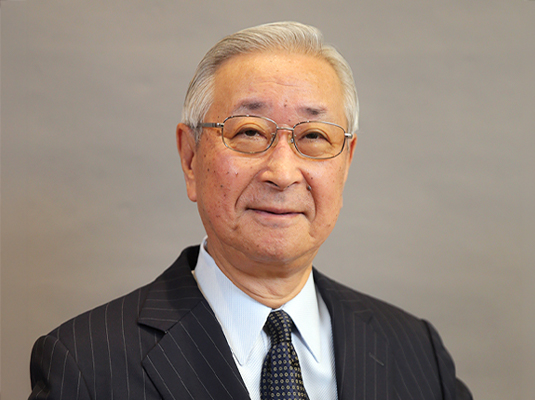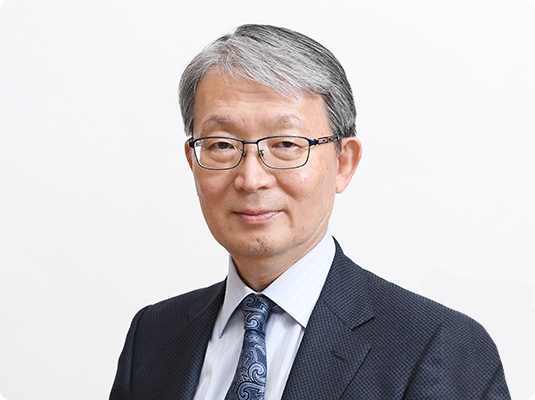Philosophy
Since its foundation in 1874, The Yomiuri Shimbun has contributed to improving democracy through accurate and prompt reporting as well as moderate and sensible editorials. It has also diversified and strengthened its management base through businesses other than newspaper publishing.

The Creed of The Yomiuri Shimbun
The Creed of The Yomiuri Shimbun is the basis of The Yomiuri Shimbun's journalistic stance. It is a promise the newspaper has made to its readers about the direction it intends to take in its reporting and in the expression of its views.
In September 1946, shortly after the end of World War II, the creed was adopted with four main pledges, including to defend "truth, fairness and fraternity" and to "fight despotic thought on the Left and the Right."
The Creed was revised for the first time in 53 years on January 1, 2000, to include pledges to foster freedom and accountability, promote humanism, and contribute to the peace and prosperity of Japan and the world on the basis of internationalism.
The Creed of The Yomiuri Shimbun
Yomiuri Conduct Guidelines
To mark the paper's 150th anniversary in 2024, the Yomiuri Shimbun Group formulated the "Yomiuri Conduct Guidelines" to serve as a compass for everyone who works in the group. Faced with a flood of dubious information due to the advancement and prevalence of the internet in society, The Yomiuri Shimbun created these guidelines to reconfirm the meaning of its existence: reporting the truth and contributing to the development of democracy through its entire business.
Yomiuri Conduct Guidelines
Messages
News Reporting
The Code of Conduct for the Editorial Staff
The Code of Conduct for the Editorial Staff of The Yomiuri Shimbun lays down the ethics and morals that should be upheld by The Yomiuri Shimbun's editorial staff in their everyday reporting and information-gathering.
We, in pursuit of the fulfillment of the ideals of news professionals―ideals that are stipulated in the Canon of Journalism of the Japan Newspaper Publishers and Editors Association and The Creed of The Yomiuri Shimbun―hereby lay down, in this first year of the 21st century, a code of conduct for our editorial staff to reaffirm the professional ethics by which the Yomiuri Shimbun staff must abide.
Newspapers will never earn public trust without accuracy and fairness in news gathering and reporting based on sound judgment. All Yomiuri Shimbun reporters and other editorial staff members shall conform to a high standard of professional ethics in compliance with this code of conduct when engaging in news gathering and reporting, based on the awareness of the importance of media services and the freedom of speech and expression, as well as of the serious responsibilities that news professionals bear
- The utmost respect to civil rights shall be paid in every phase of coverage and reporting so as not to unreasonably damage any individual's dignity or unduly infringe upon his or her right to privacy.
- Pertinent judgment shall always be exercised to ensure that the method used to gather news is impartial and appropriate and does not transgress the bounds of common sense widely accepted by the public. When covering accidents, disasters and criminal offenses, scrupulous care shall be taken to avoid offending victims and their families.
- Taking photographs by intruding upon an individual's private life is prohibited. Furthermore, taking photographs by surreptitious means that could be construed as a violation of privacy shall also be prohibited, unless doing so serves the public good.
- Source confidentiality is an ethical touchstone for a news professional. One's sources shall under no circumstances be divulged if the source has not given his or her specific permission. Promises to keep remarks off the record must be kept.
- News coverage and reporting shall not be influenced by forces outside The Yomiuri Shimbun. Professionals must not distort the facts, whether as propaganda or otherwise, for the benefit of any particular individual or organization.
- News coverage and reporting shall not be influenced by forces outside The Yomiuri Shimbun. Professionals must not distort the facts, whether as propaganda or otherwise, for the benefit of any particular individual or organization.
- Receiving any kind of benefits in a way that may interfere with the impartiality of reporting shall be avoided. This applies not only to an individual or organization directly related to news-coverage activities but also to any others concerned.
- When quoting from third parties' copyrighted works and other materials in reports, necessary procedures shall be taken, such as clearly referencing the sources. Using quotations verbatim―without permission from the source and without noting the quotation as such―is plagiarism, the most disreputable act a newspaper reporter can commit.
(Laid down on May 10, 2001)
Journalism Training Committee
The journalism training committee, set up in the Editorial Bureau, provides continuous training for reporters at all levels of experience, from new recruits to veterans.


The journalism training committee was founded in April 2013 in response to rising public awareness of the need to protect personal information as well as The Yomiuri Shimbun's misreporting regarding iPS cardiac muscle implants in 2012. Participants will be given the opportunities to learn information-gathering methods and other topics to better understand journalistic ethics as well as the role of reporting in society.
For example, young reporters go through a two -month training course after their recruitment, wherein they are given lectures and classes from a wide range of instructors, including experts from outside the company, on topics including the meaning of reporting and public expectations of newspapers. They also experience reporting in areas covered by the Political News Department and the Economic News Department to get a firsthand understanding of the work of their superiors on the front lines of the company. In this way, the company thoroughly reinforces the "backbone" of its new reporters before they begin reporting from regional news bureaus and other areas.
The Oversight Committee for Proper Reporting
The oversight committee for proper reporting was founded in December 2014 in the Editorial Bureau of The Yomiuri Shimbun, for the purpose of making the paper a more accurate and trustworthy news source. The committee is composed of a number of veteran reporters who will verify scoops such as investigative reports and articles of social importance for their appropriateness from a third-party perspective before they are published. They inspect in detail the information gathered by reporters and supervising editors in order to confirm the validity and sufficiency of the data that provides the backbone of the reports. Such initiatives are rarely seen in the world of Japanese newspapers.
The oversight committee for proper reporting was also at work behind the scenes providing painstaking fact-checking for The Yomiuri Shimbun's past articles that were honored by the Japan Newspaper Publishers and Editors Association. It is also in charge of the news-gathering and reporting guidelines, which reporters use as a guidance when gathering news and writing articles. The committee also verifies the contents of and gives advice on published articles such as local editions of the paper.
The Ombudsmen Committee
The ombudsmen committee is an organization independent from the Editorial Bureau. It has the functions of advising and providing information to the bureau on news coverage and editing in order to enhance the quality of The Yomiuri Shimbun.
The committee is comprised primarily of journalists well experienced in news coverage and/or editing. It evaluates our newspaper publications from different perspectives. "Is each story treated in line with its news value?" "Do articles provide the type of information our readers would want?" These are examples of the committee's analysis. The committee also shares with the Editorial Bureau the essentials of reporting and editing that could be useful in the future. In addition, members of the committee who oversee the use of words give practical advice to the Editorial Bureau to make sure that accurate language is applied.
Panels for the Discussion of Reporting and Newspapers
The ombudsmen committee holds panel discussions to listen to the opinions of external experts. In these discussions, three advisers nominated by the paper's own Ombudsmen Committee and specialists with expertise in relevant topics provide opinions and proposals on our reporting .
The panels, held twice a year since April 2008, have so far discussed such timely topics as earthquake disasters, education, human rights, and the judicial system. The Yomiuri Shimbun's executives and senior editors participate in the panels to ensure these discussions will help enhance the accuracy and trustworthiness of The Yomiuri Shimbun's reporting. The outline of individual panel meetings are carried in a morning edition of the paper.
Readers' Center
The Readers' Center gathers the opinions of our readers regarding our daily publications. Its staff handles inquiries, opinions, and information provided by the public all year round. The center helps make our paper better by speedily transmitting valuable information as well as important messages and requests to relevant departments within the company. See our contact page if you have any comments or questions for us.


